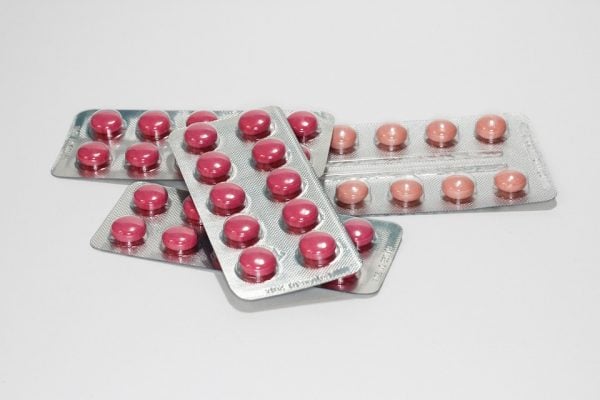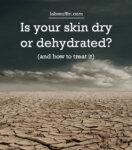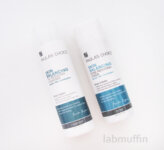This is a guest post from Facing Acne.
In the history of acne treatments, there has never been a medication that has caused more controversy than Accutane. There is also no treatment that has ever produced such startling results. For this reason, Accutane has both its passionate defenders and its equally passionate detractors. The choice of whether to try Accutane is a very difficult one. All the factors must be properly weighed, and if you are considering this option, you should be fully aware of all of the possible side effects as well as the nearly miraculous efficacy of this drug in clearing even the most severe cases of acne.

A hyperaggressive treatment like Accutane should only be considered when other, more conventional treatments have been exhausted with unsatisfactory results. With so many options on the market, it is likely that one of them will fit your skin type and help give you relief from acne. (Related: Does Proactiv really work?) Many people have questions about the more common treatments and it can be overwhelming trying to sort through all of the options. But if you are a long-time acne sufferer, it is worth the effort. Here we take a closer look at Accutane and answer at least some of the most common questions in relation to this well-known, highly debated, and very controversial acne treatment solution.
How Does Accutane Work?
First of all, what is Accutane? Accutane is the brand name of the drug isotretinoin, which is a derivative of vitamin A. It is administered in pill form, usually for somewhere between 15 and 20 weeks. It works primarily by reducing the amount of sebum your skin produces and by helping your skin regenerate faster, thus healing existing lesions and evening out skin tone by eliminating any residual redness.
Different dosages are used depending on the severity of the condition. Higher dosages have a greater rate of effectiveness and a lower relapse rate, but also come with a heightened risk of side effects.
Several things stand out as remarkable (in a positive way) about Accutane. First, it is effective in combating even the most severe cases of acne, including those that have not responded to any other treatment. It’s effectiveness is often found to be above 90%, a rate unheard of from any other treatment option. Also remarkable is the fact that many people (perhaps above 50%) never have a relapse, meaning that one round of Accutane erases their acne for good. Of those that do relapse, a second round often achieves the permanent effect they are looking for.
Side Effects and Dangers
For all of these amazing results, Accutane is not a miracle drug. The side effects can be equally as potent and worthy of consideration as the positive effects.
Many of the ongoing side effects experienced while on the drug relate to the drying effect that it has on your system. Extreme dryness of the skin is quite common, especially of the lips. Many people find they have to apply moisturizer and lip balm almost continuously to combat this effect. Many people even experience extreme drying of the eyes and accompanying irritation. On a more serious note, there have also been reports of extreme depression and suicidal thoughts, though these are rare and thought to occur in less than 1% of cases.
Because Accutane is a systemic drug (it affects much more than just your skin), there are a variety of markers that must be monitored over the course of the treatment. Regular blood tests must be performed to monitor liver function and triglyceride levels, among other things. Because of the high risk of very severe birth defects, women who take Accutane must consent to using two forms of birth control (hormonal pills along with another manual form) and submitting to monthly pregnancy tests.
Accutane exits your system within nine days of ending treatment, so there is no risk of it affecting future pregnancies. If you search the internet, you will find a wide range of long term effects being reported by individual Accutane users, but it is difficult if not impossible to say whether these issues are genuine side effects of the medication or just coincidence.
Is Accutane Worth the Risk?
Nobody can answer this question but you. A comprehensive discussion with your doctor can help you weigh the benefits along with the possible negatives of the drug. A lot of it depends on the severity of your acne and how much emotional pain and anxiety it causes you. Many people underestimate this factor, especially if they do not suffer from acne themselves. Acne and the scarring that can result from more severe cases are major contributors to depression and even suicidal thoughts, especially among teenagers. As with any potent drug, there are two sides to be considered. The important thing is to be certain you are making a fully informed choice.
References
I. A. Vallerand et al., Efficacy and Adverse Events of Oral Isotretinoin for Acne: A Systematic Review, Br J Dermatol 2017.
YC Huang & YC Cheng, Isotretinoin treatment for acne and risk of depression: A systematic review and meta-analysis, J Am Acad Dermatol 2017, 76, 1068-1076.
AS Karadag et al., Isotretinoin in retrospect, Clin Dermatol 2017, 35, 335-339.
This is a guest post from Facing Acne.





Thank you for this! I just started Accutane, and I was wondering if you can talk more about what to use and what not to use when being on it. For example, I know you can’t use exfoliants (chemical or otherwise), but can you use serums? Vitamin C? Niacinamide, etc..?
And how does the skincare routine change after using it? Especially for people who have been oily all their life and now suddenly deal with the unfamiliar dryness?
Any r recommendations for the extreme dryness of lips and skin when on Accutane?
I’ve been on Accutane 3 times total over the course of almost 10 years. No kidding!
I continued to use niacinamide and vitamin c but definitely avoided the sun like crazy! Glycolic acid I avoided because I felt my skin became too sensitive and salicylic acid I used once or twice a month after 6-8 months of taking Accutane. Any active potent ingredients made my skin quite dry and red so be careful! I used them at the end of the course which was fine for me.
Facial oil, hydrating serums and moisturisers for dry skin will be your best friend during the purging stage and first few months when your skin is super dry.
Even a bland cleanser I used in the morning dried my skin out so invest in a cleanser that will not upset your skin barrier.
Goodluck and I hope you see results! xx
This is great advice! 🙂
Thanks for sharing your wonderful posts.❤️ I have only been on Accutane for 2 weeks now but already I see such a difference! So happy ? I googled ‘Ben247ac’ and got the treatment. Everyone is complementing how smooth my skin looks ?! I had severe acne all over my face, moderate on my shoulders and back. My skin acne made me miserable, it was all over my entire face and it was red and agreessive and bumpy. Now it is pale pink and has gone down drastically and I have only been on it for 2 weeks! The side effects I have experienced are dry skin and cracked lips. I put coconut oil on my lips and moisturise constantly and that is helping to manage it a lot.
Another thing I would look out for would be dryness in places you might not expect initially. I feel like lips and overall skin dryness are mostly what people talk about, but they don’t mention things like yeast infections or nipples that crack and bleed. It’s possible that I was in the minority in that respect, but I think it’s better to be honest so that people can be prepared for whatever side effects that they may face. I don’t want this to discourage people from taking accutane. It truly did help me, but it does come with a different set of problems like essentially trading in acne for facial hair and the aforementioned problems while taking the drug.
Thanks so much for this information! I agree, it’s definitely helpful for anyone considering isotretinoin treatment.
Accutane or Roaccutane was very effective on me albeit the side effects. I found it really ‘cured’ my acne (my acne was stage 3) and kept it that way for the next few years while I focused on getting rid of my pigmentation. Unfortunately, last year my acne came back but not as aggressive as stage 3 so I was put back on Accutane which worked of course. I did try alternatives such as prescribed topical creams etc but I have not tried LED red/blue light because of how expensive treatment can be. My dermatologist said the recurrences are quite high even after Accutane and I certainly don’t want to be on Accutane forever! I realised it’s the only treatment that works for me and that acne is a life long battle even when I’m well over my teenage years ?
I have a question related to Isotretinoin, but not Accutane specifically, I hope that’s okay!
Do you know if topically applied Isotretinoin has the same anti-aging benefits as Tretinoin? I’ve been prescribed a gel called Isotrex, though not for anti-aging reasons, but was wondering if it might actually be beneficial in that regard too (which would be neat).
Is there generally a big difference between the topical forms of Tretinioin and Isotretinoin? (I tried to find something, but particularly in regards to topically applied products I couldn’t find much on Isotretinoin, pretty much every article I found talked about it in regards to pills). Thank you!
Isotretinoin (brand name Accutane, or Roaccutane) is the oral form of Vitamin A. Tretinoin (various brand names) is the topical form of Vitamin A. 🙂
Same here. I peeled in VERY unexpected places..lol. I had a very long course of Roaccutane in my early 20s. It did the job but I don’t know if I would do it over again. I practically don’t sweat at all now. This may sound like a bonus, but it is weird (not even after 15 mins in the sauna), which can’t be good. I also had a Basal Cell Carcinoma removed from my forehead at just 36yrs which is about 30 years earlier than most. I am very fair and did get burnt a lot growing up, but I still can’t help thinking the Roaccutane may have had something to do with that. Interestingly enough, I believe Isotetronin and Nicotinamide are actually being studied as a cure for BCC tumors… Do you know anything about that Michelle?
I’ve been on Accutane 3 times in my life and each time i noticed dramatic results in my acne, which I’ve had since 13.The last round of treatment was to help with adult acne about 5 years ago.
Each time I’ve been on it I’ve had excessive dryness in the areas of my body with thin skin such as lips, nips, nose but after my first round, i found that petroleum jelly works wonders for this along with Nivea Cream for face and neck and Nourishing Body Milk for the rest of my body. They’re a thicker consistency and really found that to be helpful. I was lucky as I live in Canada and started all my treatments in the Fall/Winter seasons so the thicker creams didn’t interfere with my summer activities and avoiding sunlight was easier to do.
I have suffered with acne since I was 15. I have tried all different treatments including accutane. By far the best I have found is the Dermalmd Acne Treatment. I use it day and night and have had almost no acne. It does not dry out your skin like other treatment. If you thinking about it, give it a try!